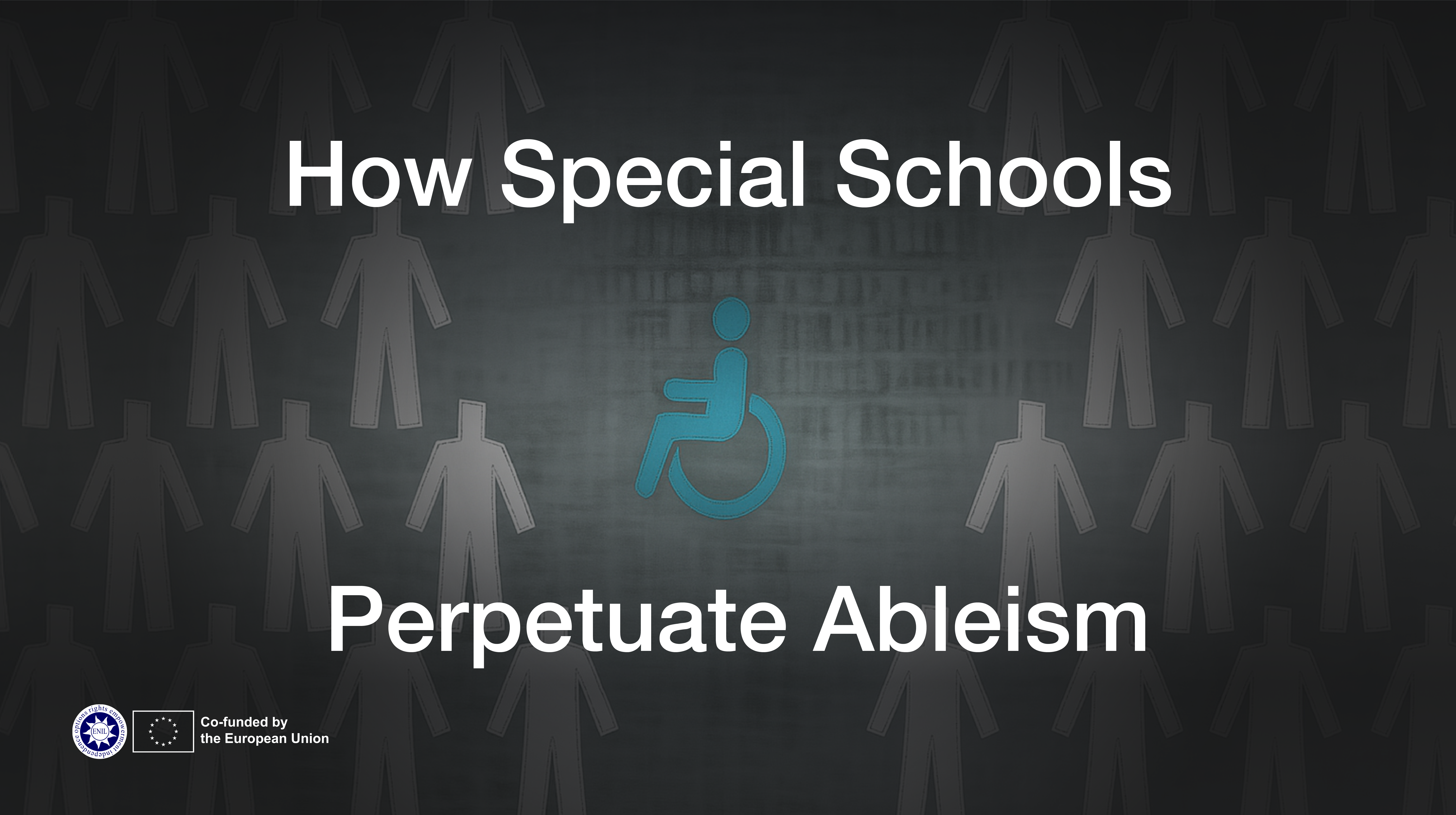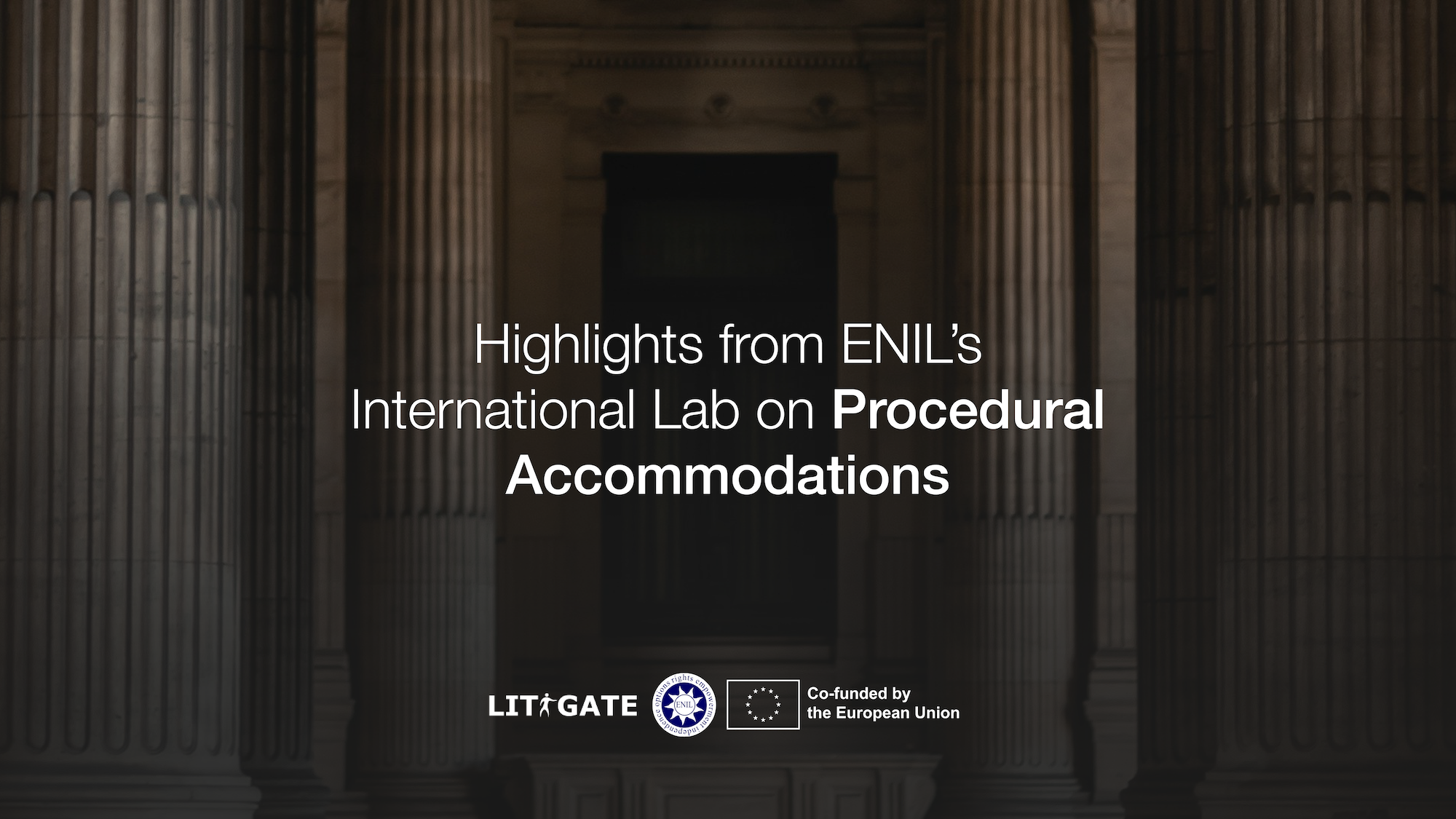By Nicolas Joncour
I am an AAC user, a non-speaking French autistic student in sociology at the University Rennes 2. I am 24 years old and I need a full time assistance . I am “severely autistic”, “low functioning” , according to ableist terms. The way to get non-neurodivergent people to understand us is not to raise awareness, but simply to demand our right to independent living. However, most of the time people don’t see us as capable of living independently. Independent living means having access to education, personal assistance and the power to make decisions about our lives.
Yet the conditions for independent living in the case of non-speaking autistic people are difficult to meet. Our representations are infantilising. Education is a key for independent living, but we don’t have access to real education, or to alternative means of communication that enable us to express complex thoughts. I was educated in a mainstream environment and by correspondence, and I had alternative communication devices very early on. This has allowed me to express my choices, to be able to make decisions and to have knowledge about the world. This gives me control over my life. Now I’m enrolling in the final year of my licence next year . At university I got reasonable accommodations like note-taking assistance, extended time for exams ( but I had to fight to have double time).
Non-speaking autistic people can achieve independent living if they are given opportunities to fully develop their knowledge without restrictions, unlike behavioural approaches, and not just life skills . The special interests of autistic people should be used for our own development and not seen as ‘’nuisances‘’. We are almost systematically placed in institutions. Our legal capacity is denied: we are seen as people who cannot make choices. Protective measures are prescribed, depriving us of our rights. People see us as people to be eradicated, as burdens on families who are not judged negatively when they commit infanticide. The means to guarantee an independent living are less important than those given for assisted dying1.
I wish people understand what it’s like not to be seen as someone who understands what is said to him, because people see in my walk, my movements, my mumblings a stigmatised figure stemming from the medical model of the ‘mentally deficient’, destined for compassion or eradication2. People are embarrassed, we look strange to them, they underestimate us, they talk to our personal assistants rather than to us directly, we can feel their fear and sometimes hate.
Personal assistance (PA) is a pillar of independent living, but it’s not often given to us. Today I have been living in a university residence, with 4 personal assistants for 3 years now. These personal assistants take turns at various times of the week to accompany me. Personal assistance help me to have the life I choose. People who work with autistic people usually do so with a psycho-educational rehabilitation approach. I don’t expect my PAs to behave like educators, but to give me the help I ask for. I’m the leader of my team. I’ve had to fight to get the life I want, but there are always battles to be fought. Recently, during a presentation on my journey, someone asked me since when I have stopped needing to prove that I had the right to choose my life. I replied that today I still have to do so .



